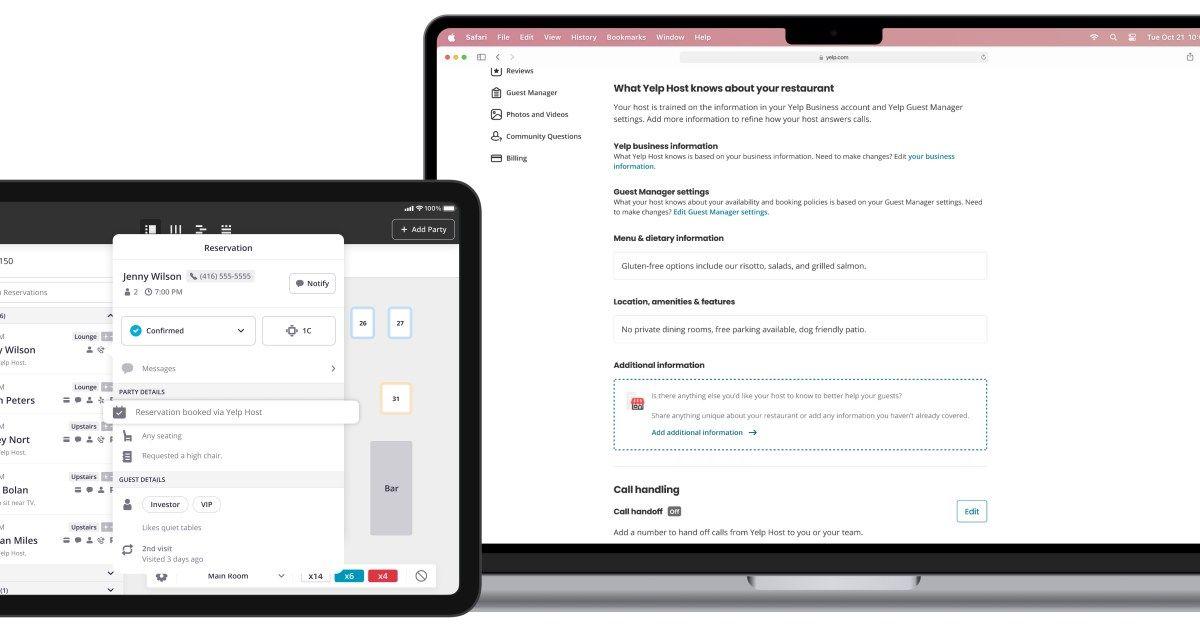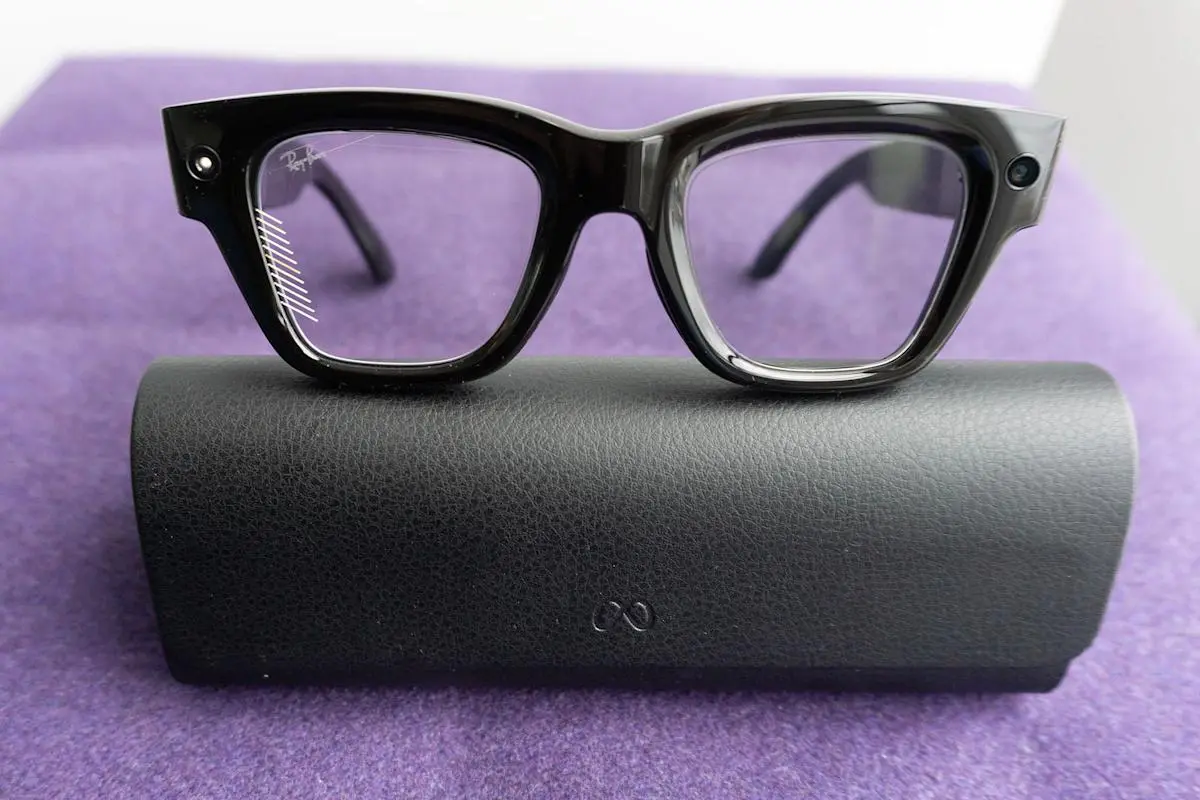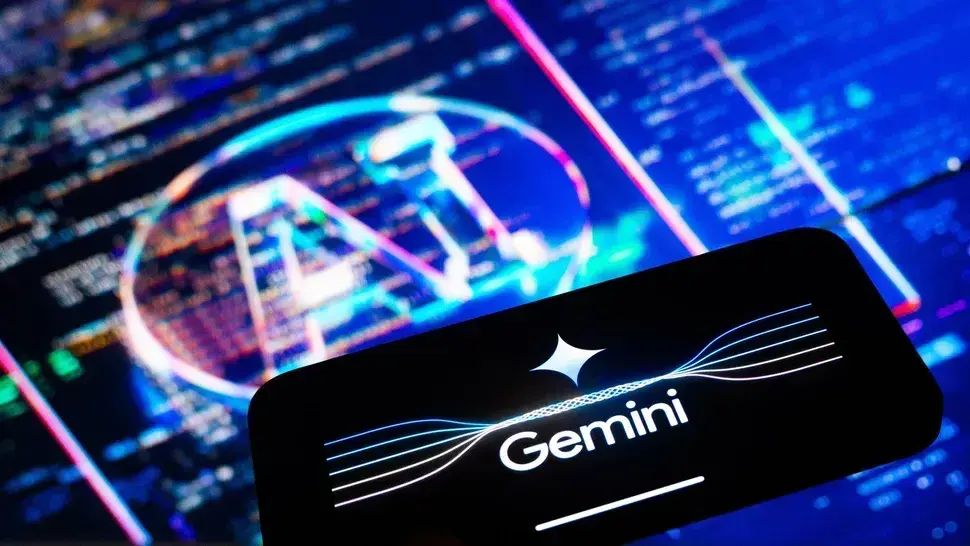AI Phone Hosts: The New Face of Restaurant Reservations
3 Sources
3 Sources
[1]
Restaurants Are Hiring AI to Pick Up the Phone When You Call
The next time you call an eatery to book a table, you might want to make sure you're talking to an actual human. That's because more and more restaurants are turning to AI to handle over-the-phone reservations, Wired reports, in one of the more overlooked areas of the tech being used in hospitality. A slew of these services have been launched in just the past few years. Among them, per Wired, include the startups Maitre-D AI, which rolled out in the Bay Area in 2024, RestoHost, which now takes calls at over 150 restaurants in Atlanta, and Slang, which pivoted to offering AI services to restaurants last year when it raised around $20 million in funding. It's a pretty low-stakes application of the tech, as far as irresponsible uses of AI go -- but it's a testament to just how pervasive AI is becoming in taking over customer service roles once handled by humans across multiple industries. The developers of these AI assistants frame it as a way to alleviate overworked restaurant workers, especially in a post-pandemic age when many of these establishments are chronically short-staffed. "Restaurants get a high volume of phone calls compared to other businesses, especially if they're popular and take reservations," Alex Sambvani, CEO and co-founder of Slang, told Wired. Sambvani claims that popular restaurants -- at least in the big cities his company caters to -- get between 800 to 1,000 calls per month -- or on the high end of that estimate, over thirty customers, possibly angry or confused, calling in per day. And who wants to deal with that? "The phones would ring constantly throughout service," Matt Ho, a San Francisco restaurant owner who uses RestoHost, told Wired. "We would receive calls for basic questions that can be found on our website." "This platform makes the job easier for the host and does not disturb guests while they're enjoying their meal," he added. That's all well and good. But these AI models tend to be sluggish, and can often get confused by customer inquiries (see: AI-powered drive-thrus). In the Wired reporter's experience, "many AI voice agents I called asked me to wait as they were conjuring an answer, or simply remained statically silent before replying." Changing her mind about a reservation mid-conversation, for example, would cause the AI to freeze up. Not all restaurant owners were impressed by the tech's performance, either. Brian Owens, who used Slang after reopening several of his New York restaurants, initially thought the pitch of using an AI to cut down on labor costs made sense. After he saw how the AI often left customers dissatisfied, however, he was disabused of that belief. "If you're asking a robot how the vibe at the restaurant is, versus someone who is able to explain it by not using keywords -- you know the difference," Owens told Wired. "I train my host staff to answer the phone with a smile, and you're not getting a smile when you're using AI." He may be onto something. For some customers, any company using AI is a total deal breaker; one recent survey showed that over half would switch to a competitor if they found a business was using AI in a customer service role. Maybe it's best, then, just to have an actual person pick up the phone.
[2]
When you call a restaurant, you might be chatting with an AI host
Voice chatbots are increasingly picking up the phone for restaurants. A pleasant female voice greets me over the phone. "Hi, I'm an assistant named Jasmine for Bodega," the voice says. "How can I help?" "Do you have patio seating," I ask. Jasmine sounds a little sad as she tells me that unfortunately, the San Francisco-based Vietnamese restaurant doesn't have outdoor seating. But her sadness isn't the result of her having a bad day. Rather, her tone is a feature, a setting. Jasmine is a member of a new, growing clan: the AI voice restaurant host. If you recently called up a restaurant in New York City, Miami, Atlanta, or San Francisco, chances are you have spoken to one of Jasmine's polite, calculated competitors. In the sea of AI voice assistants, hospitality phone agents haven't been getting as much attention as consumer-based generative AI tools like Gemini Live and ChatGPT-4o. And yet, the niche is heating up, with multiple emerging startups vying for restaurant accounts across the US. Last May, voice-ordering AI garnered much attention at the National Restaurant Association's annual food show. Bodega, the high-end Vietnamese restaurant I called, used Maitre-D AI, which launched primarily in the Bay Area in 2024. Newo, another new startup, is currently rolling its software out at numerous Silicon Valley restaurants. One-year-old RestoHost is now answering calls at 150 restaurants in the Atlanta metro area, and Slang, a voice AI company that started focusing on restaurants exclusively during the COVID-19 pandemic and announced a $20 million funding round in 2023, is gaining ground in the New York and Las Vegas markets. All of them offer a similar service: an around-the-clock AI phone host that can answer generic questions about the restaurant's dress code, cuisine, seating arrangements, and food allergy policies. They can also assist with making, altering, or canceling a reservation. In some cases, the agent can direct the caller to an actual human, but according to RestoHost co-founder Tomas Lopez-Saavedra, only 10 percent of the calls result in that. Each platform offers the restaurant subscription tiers that unlock additional features, and some of the systems can speak multiple languages. But who even calls a restaurant in the era of Google and Resy? According to some of the founders of AI voice host startups, many customers do, and for various reasons. "Restaurants get a high volume of phone calls compared to other businesses, especially if they're popular and take reservations," says Alex Sambvani, CEO and co-founder of Slang, which currently works with everyone from the Wolfgang Puck restaurant group to Chick-fil-A to the fast-casual chain Slutty Vegan. Sambvani estimates that in-demand establishments receive between 800 and 1,000 calls per month. Typical callers tend to be last-minute bookers, tourists and visitors, older people, and those who do their errands while driving. Matt Ho, the owner of Bodega SF, confirms this scenario. "The phones would ring constantly throughout service," he says. "We would receive calls for basic questions that can be found on our website." To solve this issue, after shopping around, Ho found that Maitre-D was the best fit. Bodega SF became one of the startup's earliest clients in May, and Ho even helped the founders with trial and error testing prior to launch. "This platform makes the job easier for the host and does not disturb guests while they're enjoying their meal," he says.
[3]
AI Phone Hosts Become Increasing Part of Dining Experience | PYMNTS.com
The next time you call your favorite restaurant, it may be AI that answers. That's according to a report Sunday (Sept. 22) by Ars Technica on the popularity of artificial intelligence (AI)-powered hosts used by eateries. As the report noted, there are many companies specializing in the service, offering 24-hour responses to questions about things like menus, dress codes and seating arrangements, or making, changing, or canceling reservations. While in some cases, the AI can direct customers to a human representative, Tomas Lopez-Saavedra, co-founder of AI agent provider RestoHost, told Ars Technica that's something that only happens 10% of the time. The report also raised the question of whether there is a market for this sort of service at a time when a quick Google search can handle these issues. Some of the founders of AI voice host companies say there are a variety of reasons diners use their service. "Restaurants get a high volume of phone calls compared to other businesses, especially if they're popular and take reservations," said Alex Sambvani, CEO and co-founder of Slang, whose clients include Wolfgang Puck and Chick-fil-A Sambvani pegged that "high volume" number at 800 to 1,000 per month at in-demand restaurants, from last-minute reservations, tourists, older customers and people carrying out errands while driving. "The phones would ring constantly throughout service," Matt Ho, the owner of Bodega SF, told Ars Technica. "We would receive calls for basic questions that can be found on our website." His restaurant eventually went with an AI host service called Maitre-D, which he said "makes the job easier for the host and does not disturb guests while they're enjoying their meal." These companies are part of a broader, and ongoing, digital transformation affecting the U.S. restaurant industry, as PYMNTS has written, with recent research showing that 67% of establishments have seen direct benefits to the diner experience from using automation. "Specifically, more than one-third of these establishments cite payment acceptance as a key area of impact," PYMNTS wrote earlier this year.
Share
Share
Copy Link
Restaurants are increasingly adopting AI-powered phone systems to handle reservations and customer inquiries. This technology is transforming the dining industry, offering efficiency and consistency in customer interactions.

The Rise of AI in Restaurant Communications
In a significant shift for the hospitality industry, restaurants across the United States are increasingly turning to artificial intelligence to manage their phone lines. This trend is revolutionizing how dining establishments handle reservations and customer inquiries, with AI-powered systems becoming the first point of contact for many patrons
1
.How AI Phone Hosts Work
These AI systems, developed by companies like ConverseNow and Goodcall, use advanced natural language processing to engage in human-like conversations. They can handle a wide range of tasks, from taking reservations and answering questions about menu items to providing information about restaurant hours and locations
2
.The AI hosts are designed to understand context, manage multiple requests simultaneously, and even detect the emotional state of callers. This technology allows for consistent and efficient handling of customer interactions, potentially improving the overall dining experience.
Benefits for Restaurants
For restaurant owners, the adoption of AI phone systems offers several advantages:
- Cost-efficiency: AI hosts can handle a high volume of calls without the need for additional staff.
- 24/7 availability: Unlike human employees, AI systems can operate around the clock.
- Consistency: AI hosts provide uniform responses, ensuring a standardized customer experience.
- Data collection: These systems can gather valuable insights about customer preferences and peak calling times
3
.
Related Stories
Customer Reactions and Concerns
While many customers report positive experiences with AI hosts, some express concerns about the technology. Issues range from the AI's ability to handle complex requests to worries about privacy and data security. Additionally, there are questions about the potential loss of the personal touch that human interactions provide in the hospitality industry.
Future Implications
As AI technology continues to evolve, it's likely that these systems will become even more sophisticated and widespread. This could lead to significant changes in the restaurant industry's workforce, with a shift towards more specialized roles for human employees.
The integration of AI phone hosts represents a pivotal moment in the restaurant industry, balancing efficiency with the need for personalized service. As this technology becomes more prevalent, it will be crucial for restaurants to find the right balance between automation and the human element that has long been a cornerstone of hospitality.
References
Summarized by
Navi
Related Stories
Yelp Introduces AI-Powered Host and Receptionist Tools for Restaurants
21 Oct 2025•Technology

Yelp Unveils AI-Powered Voice Agents and Enhanced Features for Restaurants and Service Providers
29 Apr 2025•Technology

AI Revolutionizes Call Centers: Balancing Automation and Human Touch
07 Sept 2025•Technology

Recent Highlights
1
OpenAI secures $110 billion funding round from Amazon, Nvidia, and SoftBank at $730B valuation
Business and Economy

2
Trump bans Anthropic from government as AI companies clash with Pentagon over weapons and surveillance
Policy and Regulation

3
ChatGPT Health fails to recognize half of medical emergencies in first independent safety test
Health





